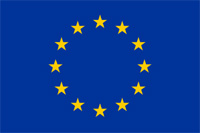News
EU Banking Union - First Step

The proposal for a common bank supervisor for the Eurozone, the so-called single supervisory mechanism (SSM) was finally agree. The deal means that ECB, the European Central Bank, will begin supervising banks in the euro area from 1 March 2014.
This is a first step on the road to a banking union, with the ECB to take over the regulation of about 200 banks, and national regulators to retain responsibility for the other 5,800 or so. The deal is not done yet. The European parliament still has to give its approval to get the system working. That could be too late for some Spanish lenders, for which the system is a precursor to direct access to Europe’s €500bn bank rescue fund.
The ECB will get direct responsibility for banks with assets of more than 30 billion euros, or representing more than a fifth of a state’s national output. This definition leaves most of Germany’s retail banking sector outside of the scope of the SSM. That was a critical condition for reaching an agreement, since the last four hours of negotiations were spent trying to strike a deal between France and Germany. Despite this compromise, the ECB will have powers to intervene in any bank and give orders to national supervisors if necessary.
UNI Europa Finance welcomes this decision. The banking union project is the biggest EU financial integration project since the creation of the Euro. With the first step now adopted, it means that several banks will end up under ECB supervisory rule.This proposal is key to put an end to the vicious circle of government debt and banking crisis across the Eurozone. To reinstate confidence in banks and governments, the ECB will monitor banks directly. Thereby, the European Stability Mechanism can give money directly to the banks that are in trouble, without having to be bailed out by weak governments.
But the agreed system is far from perfect. It is possible, for example, that a bank could find itself with some subsidiaries that are inside the EU, the eurozone and the banking union; some that are inside the EU and the banking union but not part of the eurozone; and some that are inside the EU but not part of the banking union or the eurozone. Sweden, Czech Republic and the United Kingdom have decided to stay outside the banking union, while other non-euro countries have been more positive towards joining. It will be difficult to level off the playing field for banks inside and outside the SSM – will banks from countries that do not join the SSM see their financing costs go up?
UNI Europa Finance has also argued that there has to be a differentiated approach for banks, depending on their size and level of investment in the real economy. A delicate balance had to be found between an effective EU wide system and the ability of small banks to cope with the new requirements and we now welcome the decision that smaller retail banks will remain under national supervision, even though the ECB retains the power to intervene.
Several other key issues also spring to mind. The democratic accountability of the new supervisory structure is not fully addressed in the deal. The issue of transparency and consultations for the ECB still remains even though positive steps have been taken in the European Parliament's ECON committee. As the decision-making process is transferred from the Commission and the Parliament to the ECB it is imperative that social partners can play the same role in the regulatory process. The good intention of setting up a EU-wide levelled off playing field for financial institutions shouldn’t be harmed by a democratic deficit.
Finally, two more contentious parts – resolution of failing banks and a common deposit guarantee scheme – are also still on the drawing board.

